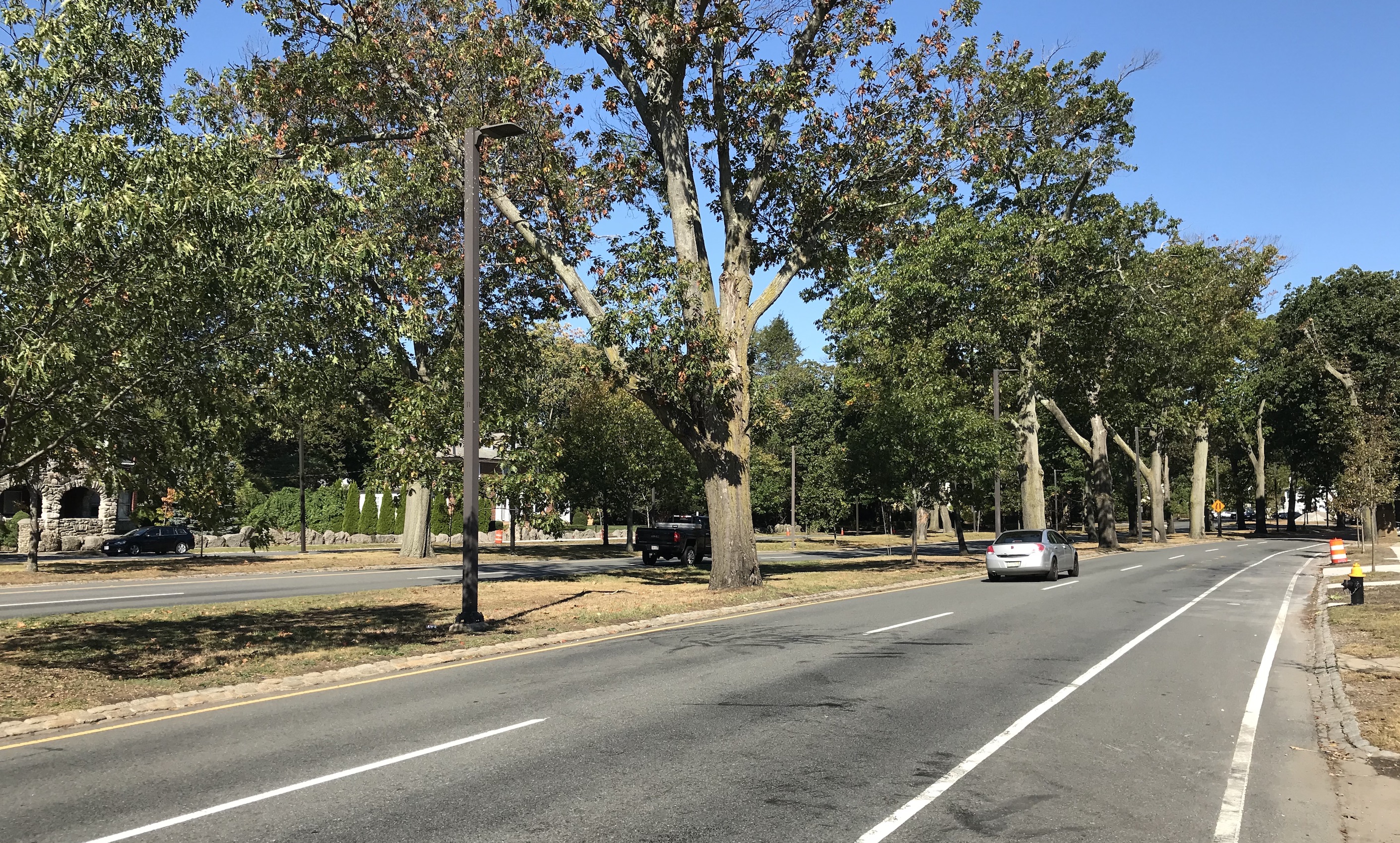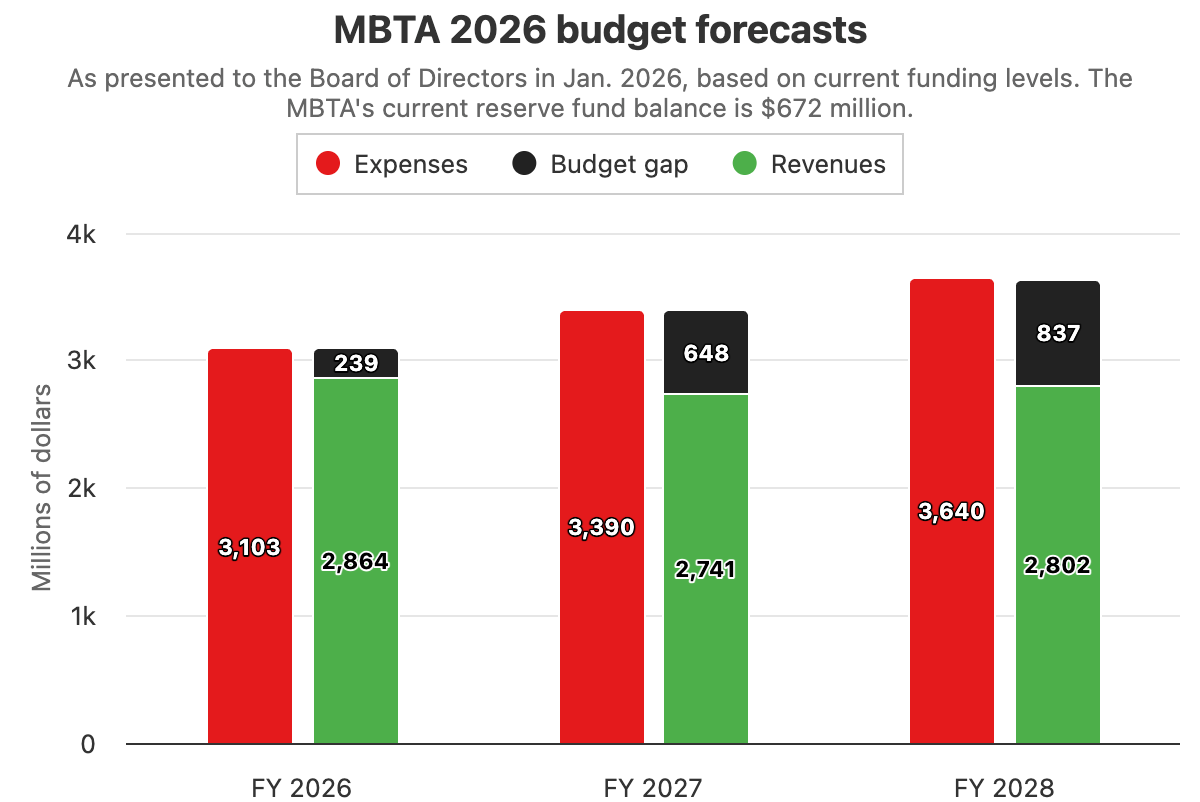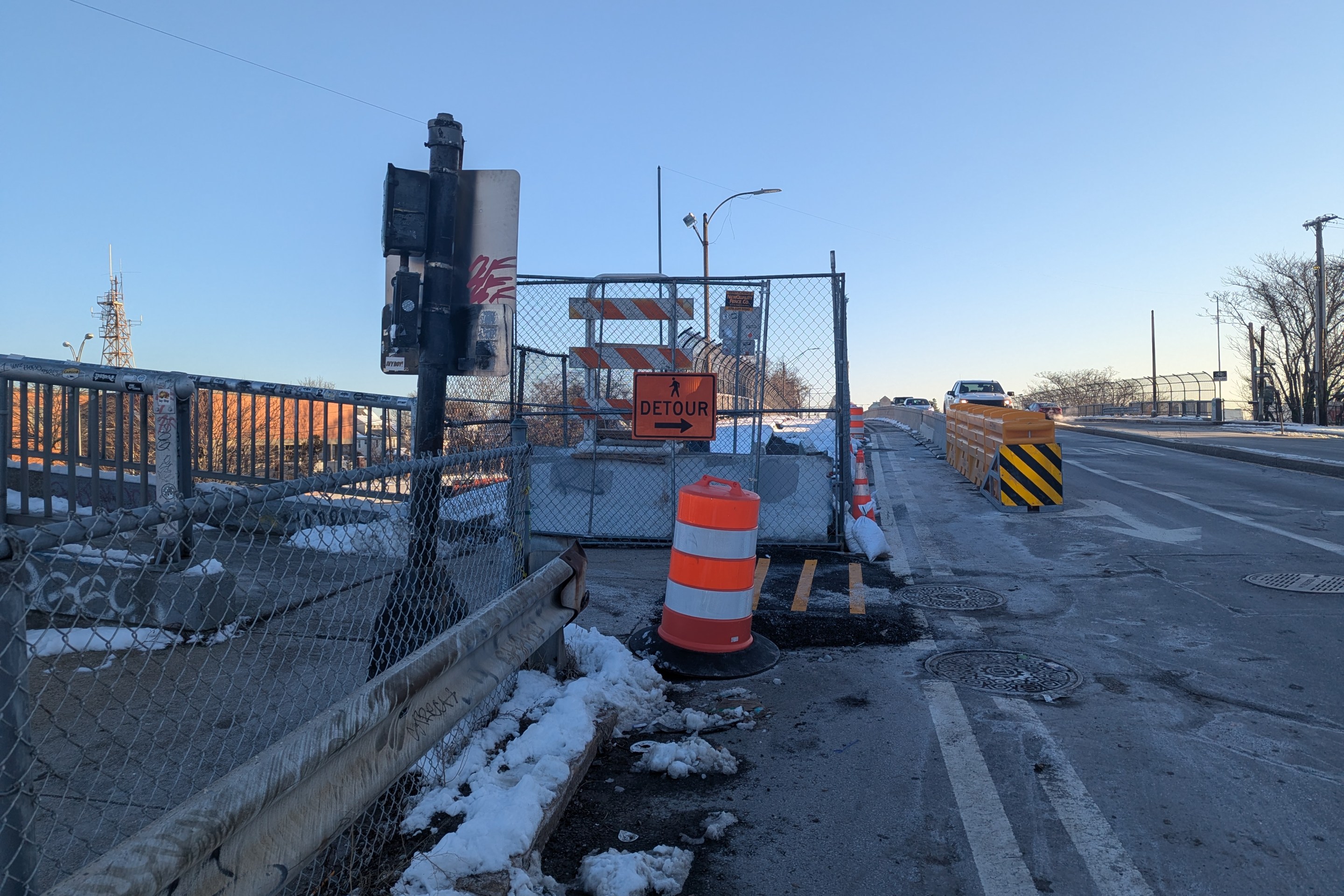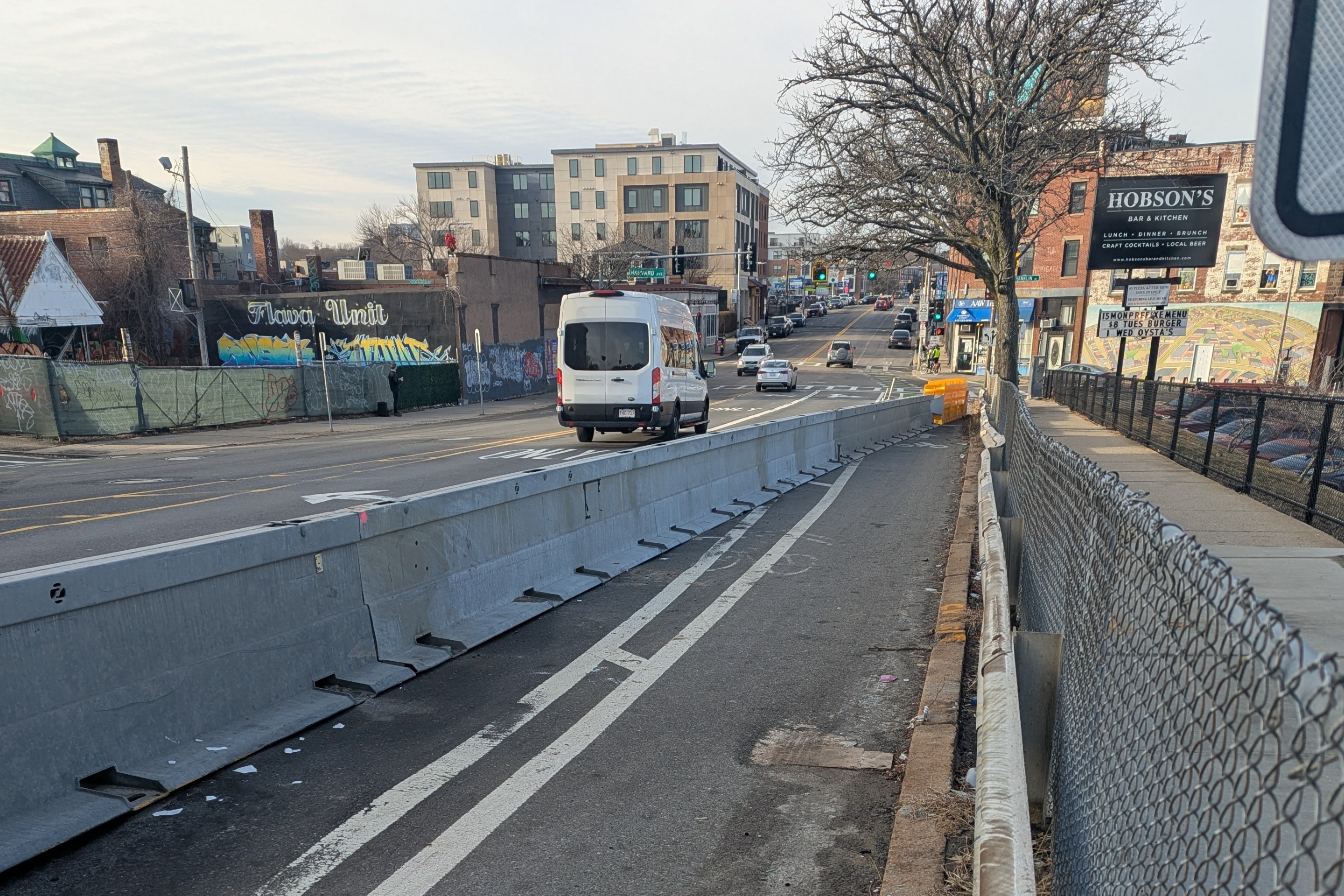In 2015, the Massachusetts Department of Conservation and Recreation (DCR) set aside a half-million dollars "for a comprehensive conditional assessment and improvement analysis of DCR Parkways located in the Boston Metropolitan Region."
Six years later, that assessment is nowhere to be found – and the DCR is flagrantly violating Massachusetts public records laws in an effort to keep the study and its related correspondence out of the public's sight.
Here's what we do know: in 2015, DCR signed a contract with Toole Design Group, an engineering firm that specializes in designing streets that are optimized for people walking, biking, and riding transit, to re-examine a number of its urban parkways in the greater Boston area.
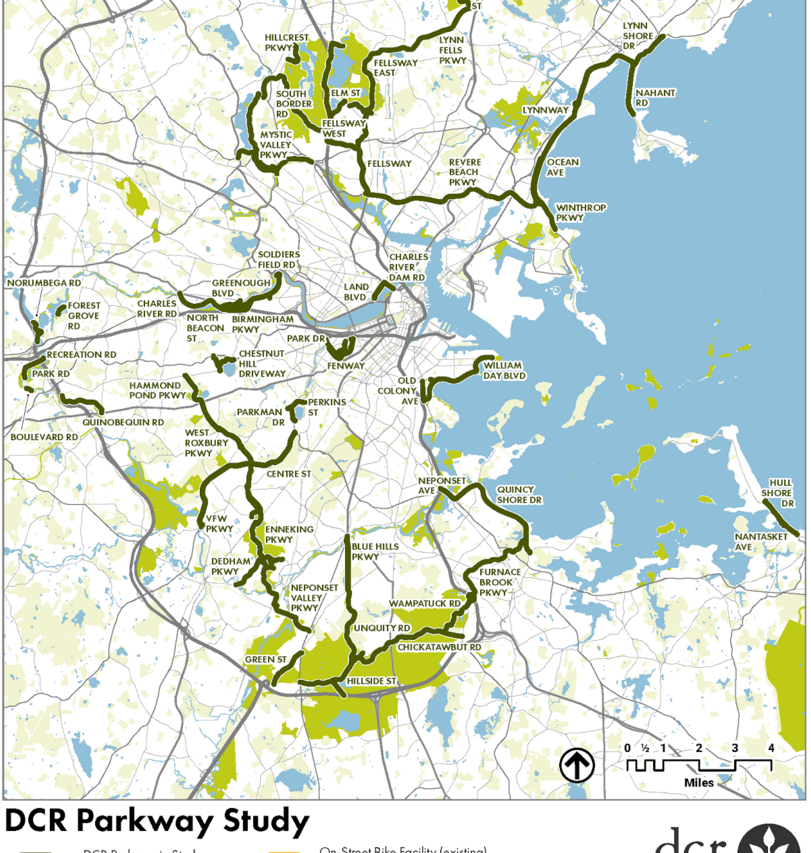
"The primary goal of this project is to provide the DCR with an updated analysis of the condition of its parkways, and to determine what changes need to be made to each parkway to bring it up to current standards... to provide multimodal accommodations for all users of the parkway, such as motorists, cyclists, transit users and pedestrians of all abilities (i.e., complete streets accommodation)," according to a "scope of services" document dated from April 2015.
The same document says that DCR had budgeted $500,000 for the study.
Steven Miller, an environmental activist and founding board member of LivableStreets who was serving as that organization's executive director in 2015, shared his recollections of the study's origins in a recent phone conversation with StreetsblogMASS.
"We were very excited," said Miller. "We’d been fighting DCR for years to put in things like crosswalks - hardly radical stuff, but they just wouldn't do it. (The parkways study) was a huge contract, and quite a big deal. It was going to give us a complete inventory of what’s out there, what’s wrong with it – even just from a pure maintenance perspective – and make proposals to start fixing it. More importantly, it was going to write a new set of guidelines for DCR's road projects."
Toole and DCR held an introductory public meeting, on October 27, 2015 (as of May 12, the presentation from that meeting is still archived on the commonwealth's website).
That meeting was billed as "study meeting #1" – but a second meeting never happened.
Nearly six years later, local advocates still wonder what happened to the $500,000 study – especially as DCR roadways continue to threaten park users' lives and the agency continues to miss easy opportunities to improve safety.
"DCR has some of the busiest and most memorable walking locations in Massachusetts – whether that’s the Esplanade, the Emerald Necklace, or any of the significant parks it controls," says Wendy Landman, who was WalkBoston's executive director when the parkways study began, and now serves as the organization's senior policy advisor.
"DCR’s parkways need to serve all those users. They need to be safe for everybody," continued Landman. "(DCR) hired a very competent engineering and design firm to help them, but it seems to have died on the vine without them ever actually saying that it wasn’t happening."
On February 23, 2021, StreetsblogMASS filed a formal public records request to the DCR to obtain a copy of the 2015 contract between the DCR and Toole Design Group, plus copies of any of the agency's email correspondence related to the study.
A week later, on March 3, Michael Tencellent, the DCR's public records access officer, filed a petition with the commonwealth's Supervisor of Records, Stephanie Murray, to charge StreetsblogMASS "up to $4,762.50" to fulfill the request.
Tencellent alleged that the agency needed compensation for the staff time deemed necessary "to review and redact" approximately 750 emails related to the request.
StreetsblogMASS appealed the DCR's fee petition. The official Guide to Massachusetts Public Records Law states that “all agencies and municipalities are strongly urged to waive the fees associated with access to public records,” and in the DCR's petition, Tencellent neglected to provide any reason why the agency's emails would need to be censored before they were released.
On March 8, Murray ruled in favor of StreetsblogMASS, writing that "the Department has not met its burden to explain how the response could not be prudently completed without redaction or segregation."
Since then, Tencellent and other DCR officials have been unresponsive to multiple follow-up phone calls and emails.
Press officials at the DCR's parent agency, the Executive Office of Energy and Environmental Affairs, also failed to respond to a request for comment and a subsequent follow-up email this week.
Massachusetts law requires a formal written response to a request for public records within 10 business days of the original request. That written response may formally request more time to furnish records within a "reasonable timeframe," up to 25 business days after the initial request; however, DCR neglected to do so.
As of May 12, 55 business days have passed since StreetsblogMASS submitted its original request to DCR.
